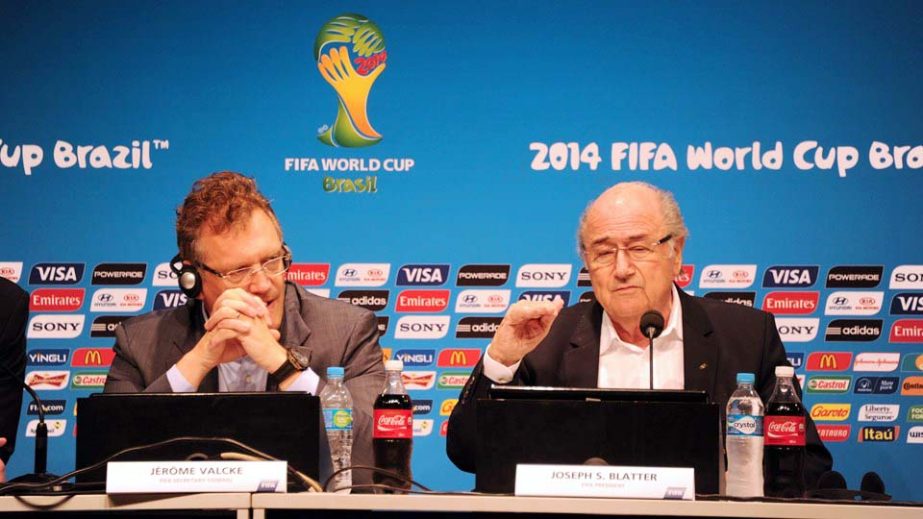
FIFA president Sepp Blatter on Monday lavished praise on the World Cup in Brazil, saying it had been a “very special” event.
“What makes the World Cup so very special this time is the quality of the football, the intensity of the games,” said Blatter, adding FIFA gave the tournament 9.25 out of ten.
“This World Cup on the field of play was exceptional,” he added. Blatter saluted the passion and intensity of the 32 teams in the event which culminated in Germany beating Argentina in the final on Sunday to win their fourth title.
“There was not one single match which didn’t have this intensity,” Blatter told reporters, while conceding that no tournament could ever be perfect.
“It’s more than emotion and passion-it is a drama,” said Blatter, who was presiding over his fifth World Cup as the head of football’s world governing body.
He said that after an explosive first phase, teams had become more tactical, but that the tournament had been one of the most attractive ever, with a joint record 171 goals scored.
Blatter admitted he had been “a little bit surprised” to see Argentine star Lionel Messi selected as best player after his fine early form tailed off during the knockout stages, but added “his goals were decisive” in the group stage.
Blatter also said the event had been notable for its spirit of fair play but said football had to continue to strive ever harder to erase racism.
Brazil’s Local Organizing Committee said it calculated that some 700,000 foreign visitors had visited Brazil in June alone-132% more than the same month last year when Brazil hosted the eight-team Confederations Cup.
Prior to the World Cup Brazil had predicted 600,000 foreign visitors for the World Cup as a whole. Deputy Sports Minister Luis Fernandes said one of the resons why the event had gone so well, after initial concerns at construction delays and poor infrastructure, was strong integration between organizers and the government.
In the months leading up to the event, there had been widespread fears that protests against the reported $11 billion cost of the Cup would mar the competition.
Protests during the Confederations Cup warm up in June of last year drew a million people on to the streets.
Although there were sporadic marches, they drew small numbers of people and could not take the gloss of a tournament widely praised as one of the best in the World Cup’s 84-year history.
Police using tear gas and pepper spray did break up one protest Sunday which drew some 300 people to a gathering near Rio’s Maracana stadium hosting the final.
Amnesty International on Monday duly complained about what it saw as heavy-handed police tactics as intimidation. In a statement, Amnesty demanded an independent investigation “into the many abuses committed by Brazilian police against protestors during the last weekend.”
“The violence meted out by the security forces over the course of the World Cup was excessive, unnecessary and a direct threat to the right to peaceful protest,” said Atila Roque, Director of Amnesty International Brazil.
Brazil, which will host the first Olympic Games to be held in South America in Rio in 20106, now hands the World Cup torch to 2018 hosts Russia.
Alexey Sorokin, the CEO of the Russia Organizing Committee, promised that, while Brazil had set the bar high, his nation would offer an “unparalleled atmosphere” and an “unforgettable tournament”.

